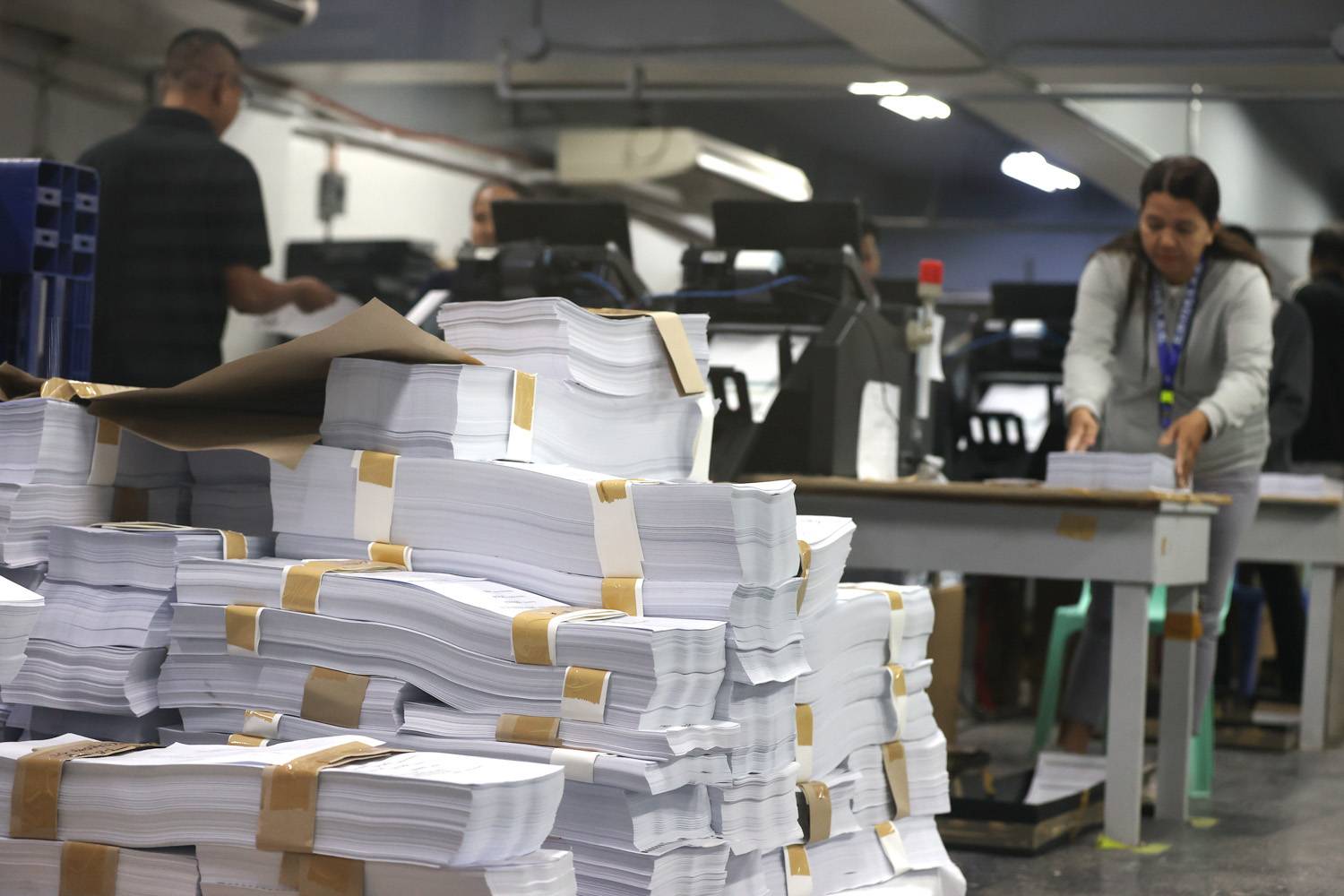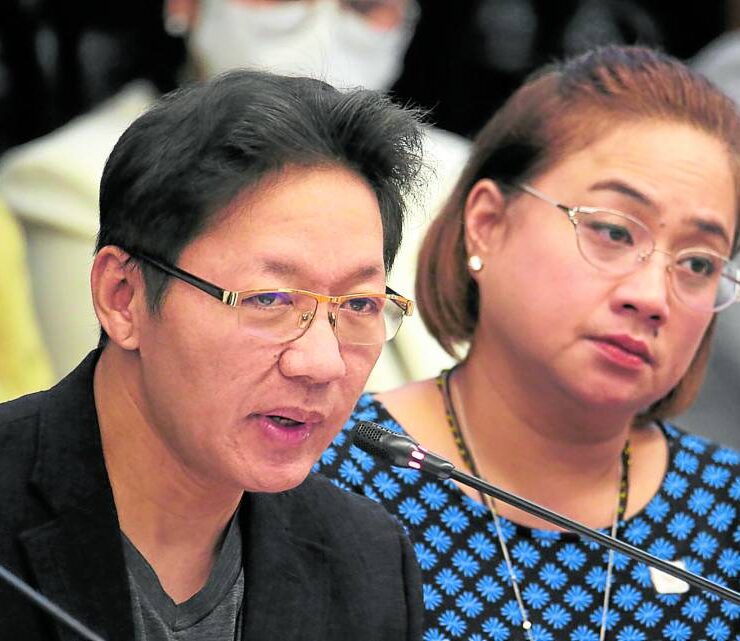A first: Comelec discards 6M ballots costing P132M

The Commission on Elections (Comelec) on Wednesday sought to allay fears of the May 12 elections being postponed as it announced the adjustments it would make after being ordered by the Supreme Court to include in the ballot five candidates whom the poll body earlier disqualified.
The situation is unprecedented in the history of the Comelec, which on Tuesday stopped the printing of ballots for the midterm polls because of the court ruling.
Before the stoppage, about six million ballots have already been produced at a cost of P132 million (at P22 per ballot), according to Comelec Chair George Erwin Garcia.
“We will proceed with the automated election. That’s in accordance with the law. Your commission has no intention to disobey the Supreme Court. We will always be the good guy, simply because that is our commitment to democracy,” Garcia said in a press briefing.
“Our countrymen should not worry; your Comelec guarantees that we are in control of the situation,” he added.
Garcia expressed confidence that the Comelec timeline would still hold, adding that a “Plan B”—a set of contingency measures—had been put in place.
‘Back to zero’
“This is the first time in electoral history that the Comelec will order the reprinting—back to zero—of the ballots in compliance with the Supreme Court,” he said.
In past elections, he recalled, some disqualified candidates were able to secure a temporary restraining order (TRO) from the Supreme Court while the ballots were already being printed, but the Comelec did not stop the process and the candidates’ names were still not included.
April 14 deadline
In the next few days, he said, the poll body’s Election Management System (EMS) will be updated to include the five additional candidates so that more than 1,000 new ballot faces or templates could be generated.
Printing may resume on Monday, Jan. 20, he added, citing the Comelec target.
The source codes of the poll automation technologies to be used need not be changed or updated, he said.
The poll body is also looking at the possibility of utilizing four other printing machines of the National Printing Office to ensure the completion of all 73 million ballots before its April 14 deadline.
The six million ballots that were already printed, from Jan. 6 to Jan. 14, will be discarded since they did not contain the name of senatorial candidate Zubair Mustapha of the Workers’ and Peasants’ Party (WPP), one of the candidates who questioned his being branded a “nuisance” candidate and later secured a TRO from the high court.
The update of the EMS could be easier if the withdrawal from the Senate race of former Ilocos Sur Gov. Luis “Chavit” Singson were formalized soon because the number of the candidates alphabetically listed in ballot will remain 66, according to Garcia.
Aside from Mustapha, the other candidates who secured TROs were Edgar Erice, who is running for congressman of Caloocan City’s second district; Charles Savellano, also a congressional aspirant in Ilocos Sur’s first district; Chito Balintay, who is running for governor of Zambales province; and Florendo Ritualo Jr., an aspiring councilor in San Juan City.
Disposal process
Based on an initial inventory, the ballots already printed included “test ballots,” sets intended for overseas and absentee voters, and batches for the Bangsamoro and Caraga regions.
The resident auditor from the Commission on Audit assigned to the Comelec will be invited to discuss the disposal of these ballots so that they cannot be used to cheat or sabotage election results.
As for the TROs secured by the other candidates, Garcia noted that they are running for local positions and that the corresponding ballots for their areas had not yet been printed.
“Our [schedule] is very tight. I wish this is the first and the last [time TROs will be issued while ballots are already printing]. If there’s another [coming], again, the Comelec will find ways but these have time limits,” he said.
Bill vs ‘nuisance’ bets
Meanwhile, at the House of Representatives, a bill has been filed seeking to impose criminal liability on candidates who can be shown to be merely out to sow confusion among voters and mock the electoral process.
In her bill, Laguna Rep. Ruth Mariano-Hernandez said such “nuisance candidates” should not only be disqualified by the Comelec but also charged in court.
Quoting the Omnibus Election Code, Hernandez was referring to electoral aspirants whose names have “a similarity” to that of their opponents but whose “circumstances or acts… clearly demonstrate that [they have] no bona fide intention to run for the office.”
For the lawmaker, the act of filing a certificate of candidacy by persons with names similar to those of “established” or incumbent public officials can be taken as prima facie evidence of an intent to sow confusion among voters. —WITH A REPORT FROM JEANNETTE I. ANDRADE





















